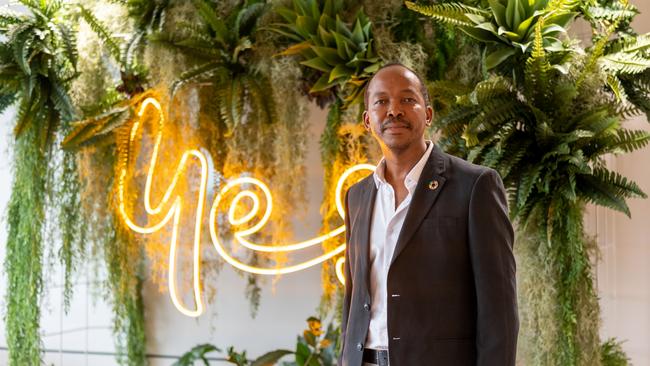A society-wide approach to cybersecurity is essential, newly appointed expert says
Cybersecurity is only as strong as the weakest link, necessitating both a society-wide and international approach, Dr Mamello Thinyane says.

Cyber diplomats, psychologists, and “threat hunters’ looking for cracks in digital defences will all be key weapons in the battle to maintain security, the inaugural Optus Chair of Cybersecurity and Data Science at the University of South Australia says.
Dr Mamello Thinyane, who has held previous roles with the United Nations University Institute in Macau and as a visiting research fellow at UNSW, was appointed to the Adelaide-based role this week.
Dr Thinyane said a broad focus would be helping the nation identify and fill the gaps in cybersecurity frameworks, strengthen the weak links, and solidify Australia’s place among the best performers in the field.
Australia is currently ranked 12th globally in the International Telecommunication Union’s Global Cybersecurity Index, and fifth in the Asia Pacific.
Dr Thinyane said Australia was performing well in the technical domain, although like all jurisdictions there was a need for more skilled people, however the nation’s entire digital framework, from major corporations down to individuals using their phones and logging into apps and websites, needed to be considered when thinking about the issue.
And with cybersecurity naturally a transnational issue, “cyber diplomacy” - how we interact and collaborate with other countries, was also vitally important.
Dr Thinyane said while many government organisations and corporations around the world had good cybersecurity solutions in place, weak links such as smaller organisations, not for profits and individuals needed to be thought of as part of the system.
“Covid was a good example of how risks cascade across sectors,’’ Dr Thinyane said.
“Sometimes you’ll start off with a cybersecurity issue. It might cascade into a compromise of the health industry and then cascade into another area.
“Our economies these days are completely reliant on digital technologies.’’
Dr Thinyane said his research work in the past had looked at how to identify and fill the gaps across the entire economy and society, and he was particularly interested in how to assist organisations such as small to medium enterprises to implement cybersecurity measures.
“Until we fix the systemic issues we are always going to remain vulnerable,’’ he said.
On the skills front, soft skills such as education and the ability to influence behaviour were also crucial, Dr Thinyane said.
“Cyber is a confluence of the physical and social layers of society, so invariably you need people from psychology to think about the human factors,’’ he said.
“You need to think about cyber diplomacy - how do you start to interact within an international setting, what are the norms of responsible state behaviour?
“How do you start to interact when you have a cyber threat emanating from another jurisdiction? That’s a different skill set from just the technical skills.’’
“Digital hygiene” broadly was also important, and involved educating everyone about best practice in terms of their own digital security, Dr Thinyane said.
“I think you can do quite a lot within the formal education system,’’ he said.
“But I think there’s also other people who are left out of that, where civil society organisations can come on board and assist.’’
Professor Marnie Hughes-Warrington from UniSA said Dr Thinyane’s appointment had been part of a three year collaboration with Optus, and fit broadly within the university’s remit to help diversity the Australian economy.
“We’ve always made it our mission to see the world from the lens of our community and our industry partners,’’ Professor Hughes-Warrington said, adding that bolstering the university’s cybersecurity credentials and output would be crucial as defence spending ramped up in South Australia.
“We know the ambition of the state is to grow, accelerate, diversify, and if we can see within the system of the economy and society that there are critical parts that need to be finetuned and accelerated because it’ll help the whole economy, we’ll do that.’’
Optus itself was the target of one of the largest cyber attacks in Australian history last year when the personal data of about 10 million people was stolen.
Optus managing director enterprise and business Gladys Berejiklian said the lesson from the hack was that even if you have best practice, the threat remains.
“You can never rest easy and you can never assume that you’ve mitigated the risk,’’ she said.
“There’s always that threat and I think that’s why us investing in the future, having people who are more attuned to mitigate that risk is so critical.’’




To join the conversation, please log in. Don't have an account? Register
Join the conversation, you are commenting as Logout